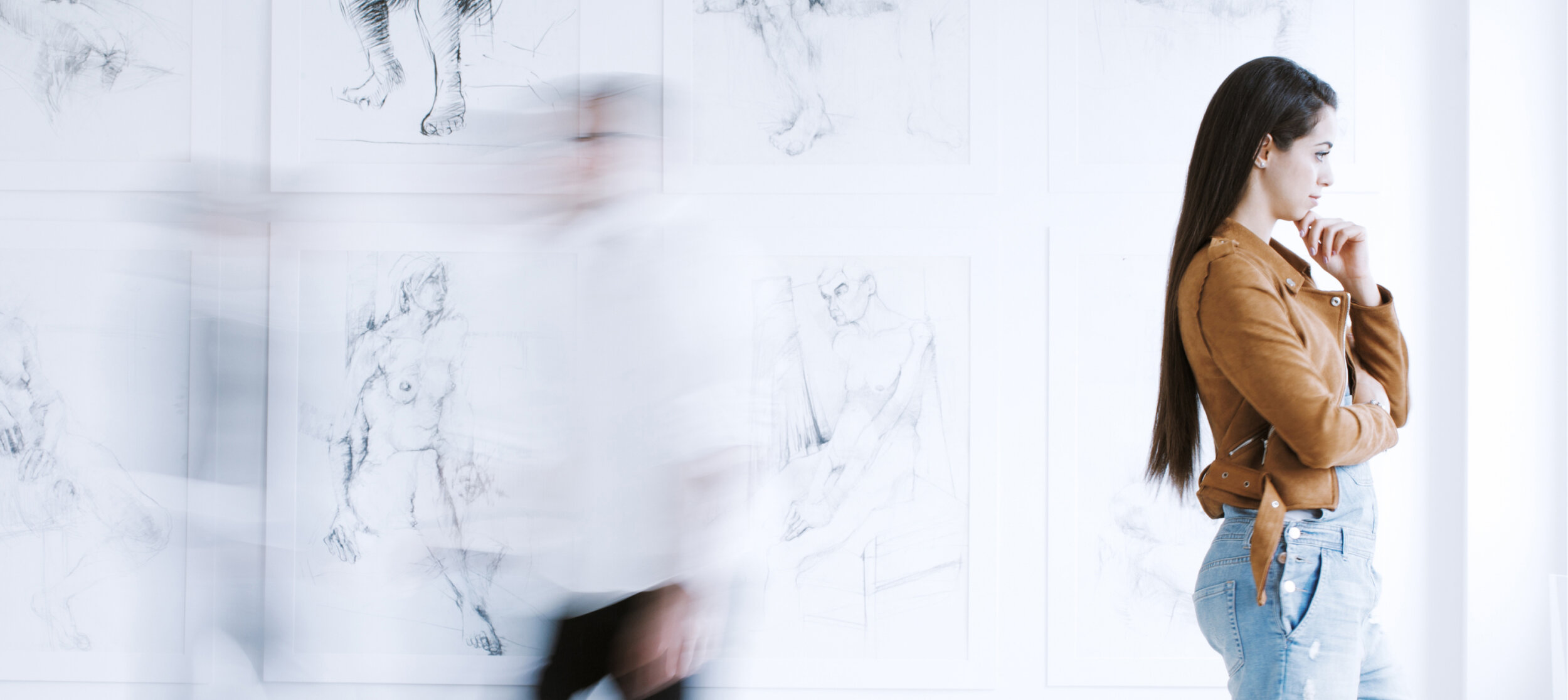
Public
Programmes

National Museum Day Webinar – Reflecting on MEWCO Vision 2040
To commemorate National Museum Day, MEWCO (Metro and West Coast) museums held a webinar to reflect on their Vision 2040 strategy and to showcase how some of the MEWCO museums are innovating and adapting to a changing world. The webinar followed the theme for International Museum Day 2021, “The Future of Museums: Recover and Recreate”, which is all about how museums and cultural spaces can reimagine and redefine themselves by co-creating and implementing new, innovative practices that address today’s challenges. In line with this, the webinar programme focused on digital transformation, the social relevance and sustainability of museums, and how museums are addressing issues related to the environment and financial sustainability.
Following an introduction by Michael Janse van Rensburg, Head of Museum Services at the Department of Cultural Affairs and Sports (DCAS), the MEWCO Regional Manager, Helene Vollgraaff, spoke about MEWCO’s Vision 2040, which reflects the latest global thinking on the role of museums with its emphasis on the need for museums to foster inclusion, critical thinking, dialogue, co-curatorship and improved access.
Wendy Christian Kambarami, Cape Medical Museum Management Committee member, facilitated the first topic on the webinar programme – digital transformation. The presentations discussed some of the latest online and digitisation projects being undertaken by the Simon’s Town Museum (an oral history project using social media), the Cape Town Museum (a digital platform currently in development) and the Sendingsgestig Museum (the digitisation of collections).
Part 2 of the webinar was facilitated by Regina Isaacs, a member of the Simon’s Town Museum Board of Trustees. Presentations by the Lwandle Migrant Labour Museum and Jan Danckaert Museum explained how they ensure that their museums are relevant and accessible by focusing on the needs of the communities they are located in.
Amanda Lomberg, Cape Town Museum Management Committee member, facilitated Part 3 of the webinar, which looked at how the South African Fisheries Museum in Velddrif have developed fynbos gardens to promote knowledge about local plants and to encourage engagement around sustainability issues. The Simonstown Museum described how it is reconceptualising its mainly social-historical exhibitions to incorporates the rich and unique environmental heritage of the area.
Part 4 of the webinar looked at what new business models MEWCO museums are exploring to remain financially sustainable in these challenging times. The Hout Bay Museum spoke of their partnership with the Denis Goldberg House of Hope. The Wheat Museum in Moorreesburg and the SA Fisheries Museum talked about how a wide range of partnerships – including with business, tourism, community organisations and the media – have helped them survive and thrive.
What emerged throughout the webinar and its discussions is that despite partnerships, funding into the future remains a challenge. In the context of South Africa, where the majority of the population is struggling to make ends meet, museums will need to rely on external support in order to continue to reimagine and reinvent themselves. There is definite scope to explore further funding strategies which could include those involving the private sector, monetising digital platforms with their ability to reach a wider more global audience, and increasing the fundraising capacity of museums.

Shaping our Future
Shaping our Future is a collaborative project between the Cape Metro and West Coast Museums and the Africa Unite School Club programme, which is designed to give youth younger than 25 a platform to share their views. Though the main activities take place in Youth Month (June), the programme runs throughout the year.
Each year the programme has a different theme. In 2020, it was Youth Voices in a time of Covid-19. [hyperlink to past programmes]
The 2021 theme is Kyk/Jonga/Look: Showcasing communities through the eyes of the youth. We think of history as monumental events. However, we all co-create history as it is also made up of the many daily lived experiences of individuals. These lived experiences are as important as the ‘big’ histories. Do you have a favourite place in Cape Town, your community or in the home? Are there places that remind you of important events in your past or in your family’s history?
How to contribute:
Languages: Afrikaans, English and isiXhosa
Formats: Artwork on paper, digital art, a video (no longer than 2 minutes), a poem, or an original song.
Submitting your contribution:
Visit our Facebook page www.facebook.com/capeyouthvoices to find out more and to see the latest contributions.
Email your contribution to capetownmuseum@westerncape.gov.za.

Cape Town Futures
We believe that museums should be active agents of change and development. Museums should inspire and change lives while they mediate identity. Cape Town Museum therefore has a dialogical activist ethos that provides platforms for inclusive dialogue on the future of the City.
The Cape Town Futures programme consists of dialogues, webinars and workshops that promote a socially and environmentally just Cape Town.
To realise this programme, Cape Town Museum is inviting organisations and platforms to work with the Museum on collaborative projects.
Please see the Events page for any programme of events.

Cape Town Museum Memory Project
Cape Town Museum, in partnership with the City of Cape Town, documents and collects personal histories, memories and stories of Cape Town as told by its residents.
The Cape Town Museum Memory Project gives residents the opportunity to document and share their history using their own words, images and perspectives.
We are looking for stories, which could share your experiences related to:
My community, My neighbourhood – stories about communities and neighbourhoods.
Places I have lived – stories of settling, relocation and re-settlement.
My leisure spaces/spots – highlighting favourite leisure spaces such as dance halls, meeting places, sports clubs and fields, and hiking trails.
Favourite social events – such as parades, carnivals, markets, and pageants.
Food – such as family food traditions, ‘veldkos’, foraging, iconic places and people in communities.
How you can contribute:
Send us your story and photographs. Your story can be submitted either as a written story or as a short video (of no longer than 3 minutes)
If you are a member of an organisation, contact us and we can set up a memory project in partnership with your organisation.
Visit the Cape Town Museum Memory Centre to record your story.

Orange the World: Generation Equality stands against Rape! Count me in.
The 16 Days of Activism against Gender-Based Violence which is an annual international campaign is commemorated annually between the 25th November and the 10th December. These days respectively are known as International Day for the Elimination of Violence against Women, Human Rights Day with World Aids Day being observed on the 1st December. This period has started with activists at the inaugural Women’s Global Leadership Institute in 1991 and continues to be coordinated each year by the Center for Women’s Global Leadership. It is used as an organizing strategy by individuals and organizations around the world to call for the prevention and elimination of violence against women and girls. In support of this civil society initiative, under the leadership of the UN Secretary-General, António Guterres, the United Nations Secretary-General’s UNiTE by 2030 to End Violence against Women campaign (UNiTE campaign) calls for global actions to increase awareness, galvanize advocacy efforts, and share knowledge and innovations.
This year’s 16 days of activism was also observed by the Cape Town Museum in collaboration with the Gender Equity Unit of the University of the Western Cape, by working with two youth institutions. The Cedar High School in Mitchell’s Plain and the “I am passion” Youth Café also located in Mitchell’s Plain came together on the evening of the 5th December to remember those who are affected by gender-based violence. Through an art demonstration, the Cedar high school learners expressed their views of GBV, feminism and LGBTIQA+ rights to illustrate that all these matters in intersecting. The “I am passion” youth café showed two powerful video clips which the youth worked on.
Limpho Makapela of the Gender Equity Unit talked about the 16 Days of Activism campaign while Joseph Coetzee of Cedar High School and Brinley Samuels of the I am Passion Youth Café talked about the two projects on show.
Cedar High School and I am Passion Youth Cafe Youth

Reimagining Cape Town as a Feminist City – Women’s Day Webinar
If we could rank cities according to how desirable they are for women to live, work and play in, where would Cape Town rank? What can we do to make Cape Town a better city for women? To celebrate Women’s Day, the Cape Town Museum together with the Gender Equity Unit (GEU), University of the Western Cape, organised a webinar to explore these questions and to reimagine Cape Town as a feminist city. The event featured an inspiring and powerful group of speakers who are passionate about creating a gender sensitive and safe city where equal opportunities exist for all to thrive and grow.
The webinar was opened by Helene Vollgraaff, manager of the Cape Town Museum, and was facilitated by Maria van Staden from the GEU and Juliana Davids, who manages the Cape Town Futures programme on behalf of the Cape Town Museum. Helene gave some context to the discussion and the work of the Cape Town Museum, which has as its tagline “a future inspired” – highlighting the museum’s focus on reimagining Cape Town for a better future. It was thus fitting to commemorate Women’s Day by exploring this theme with women’s experiences of the city as a focus point.
Laura Robinson, an architect, heritage consultant and Chairperson of the Cape Town Museum Management Committee opened the webinar, giving an international perspective on the creation of feminist cities. She outlined how the need for feminist cities is enshrined in various international policies and programmes such as the Sustainable Development Goals (SDGs) and the United Nations’ Guidelines on Safer Cities. She makes the point that city policies and planning need to be based on women’s and girl’s needs and rights. How we develop public open spaces, parks, playgrounds, pedestrian ways, public transport infrastructure and well-lit safe spaces is key to creating feminist cities. In order to make this happen, we need to ensure that women are part of the teams who design, monitor and make decisions about how our cities are developed.
The first speaker, Ntombi Mbadlanyana, a gender activist working for the Provincial Department of Local Government, takes this point forward and talks about the importance of women in leadership positions. She explains how historically cities were built as an economic hub for men. In order to bring about change and advance women’s interests, she stresses the need for gender representation in senior management and decision-making roles at local government level as this level is closest to the community being served. Women need to be trained and empowered to analyse policies and participate in key decision-making processes in order to effectively advance the interests of women. The discussion raised the point that representation does not necessarily lead to transformation, which is important to consider when working towards more equal representation of women at management level.
In the same way that as we need more women in decision-making positions, Apiwe Hotele, Technology Commercialisation Specialist at the South African Radio Astronomy Observatory (SARAO), spoke about the need to have more women in science, technology, engineering, and mathematics (STEM) fields so that the knowledge production that is feeding into the development of our cities is more in the hands of women. She talked about various programmes she is currently involved in that support young people, especially girls, in science subjects such as the IMBASA Programme and Enlighten-Edu, an online platform that supports learners in maths and science education.
A video of a short theatre piece called Taxi Queen, produced by the GEU theatre group and highlighting the abuse women face on public transport, presented a suitable introduction into the next topic, which was around security, safety and public service in feminist cities. Nomfundo Makhubo, Stakeholder Coordinator at the SARAO/Square Kilometre Array (SKA), works to support the interests of community members by ensuring that their voices are heard by those making decisions. She stressed that creating local economies is an important part of creating a more equal city – distributing economic opportunities not just in the urban centres, but closer to where people live.
Slee Mbhele, Project Coordinator, Division of Human Biology at the University of Cape Town and volunteer firefighter, spoke about her passion to break gender stereotypes that limit women and girls from reaching their potential. For her, gender empowerment is not about making women strong – they are already strong – but about changing the way the world perceives women. It is also about how women and girls perceive their own potential, highlighting the importance of teaching young girls that they can do anything they set their minds to.
Finally, Miranda Pillay, a retired senior lecturer at the University of the Western Cape (UWC), looked at the role of religion and feminist cities. She started her presentation by asking the questions: who is being memorialised in our cities and in our sacred texts? How can we retrieve women’s voices that have been erased from history? She makes the point that feminism remains an “F-word” and explains how women are being dismissed in four ways by being trivialised, spiritualised, particularised, and universalised – a point that resonated with many participants in the webinar. Miranda sees religion as playing an important role in transforming cities as many policymakers and lawmakers in charge of our cities are members of faith communities. Generally, all religions promote values and have the potential to inspire their adherents to advocate for the well-being of all. In conclusion, she recommends that we need to be intentional about listening to what and how women experience previously male-dominated spaces, we need to validate women’s experiences, and also explore alternative practices that will open opportunities for women to access services and resources in a safe, women-friendly environment.
Concluding remarks by the facilitators and Helene Vollgraaff acknowledge that the task of transforming our city may seem like an overwhelming one. Initiatives such as this webinar can, however, start a conversation, help people connect, and act as a spark to take our vision forward. Ideas were welcomed on how to take this conversation forward into the future.
Webinar PowerPoint Presentations and webinar recording:

Shaping Our Future Youth Webinar – All About Healing
“Amazing”, “inspiring” and “powerful” were the words used by participants who attended a recent webinar to celebrate the end of the Shaping our Future Youth Month initiative. Organised by Cape Metro and West Coast Museums together with Africa Unite, the project had asked young people to submit creative works (poems, videos, art, or photography) that reflect on the impact that COVID-19 is having on their communities and to share their visions for a better future (their contributions can be viewed on the Shaping Our Future Facebook page.
The webinar sought to reflect on some of the submissions and to offer young people inspiration and support for the way forward. And what a healing and inspiring webinar it turned out to be thanks to our wonderful guest speakers and our moderators, Bongeka Gumede from Africa Unite and Tazneem Wentzel from Simons Town Museum!
Following a welcome and introduction from Helene Vollgraaff from Cape Town Museum, the first guest speaker, Amy Simons, spoke of her work as an artist and, in particular, her work with young people using art as a means for therapy and healing. Responding to questions from some of the webinar participants, she offers useful advice on staying inspired and creative, highlighting the importance of connecting with other artists and not letting our ever-critical inner voice take over.
She talked about some of the challenges of keeping her work with young people going during lockdown and how important she found this work to be in helping young people to express themselves in these difficult and emotional times. One valuable takeaway message was that everybody can be creative and that one does not necessarily require resources to be creative – art can be made using available materials such as crayons, tea bags, coal from burnt wood, and recycled materials.
The second guest speaker was Earl Mentor, a life coach, author and activist from Ocean View whose powerful story and message touched many of those attending the webinar. With gender-based violence being a dominant theme in many of the creative submissions received, Earl addressed this issue with his talk on “Healing Men and Boys”.
He shares his own story of growing up in a troubled home with an alcoholic mother and drug addict father, living on the streets as a young teenager, and then turning to a life of drugs and gangs for a sense of belonging. From his own experience, he knows that “hurting people, hurt people” and he stresses the importance of men and boys being able to express emotions, come to terms with their past, acknowledge the impact the past has on them, and ultimately choosing to heal in order to break the cycle of violence and trauma. He talks about his own process of transformation and healing, how he reached a point when he refused to carry the burden of his parents and decided to “be more, live more and do more”. His message to young people is that they should “be the change they want to see”, and if they want to see wider change within their community, they should look to expanding their circle of influence and start a movement for change.
Jonty Dreyer from Hout Bay Museum made closing remarks to end the webinar. Inspired by the guest speakers, he emphasised the need for heroes in today’s society, calling on everyone “to take this moment to inspire others and shape the future.”
Presentations and webinar recordings:

Emancipation of Slavery Memorial Event at the Mamre Mission Station
The Cape Town Museum has held various events this year including our social inclusion dialogues. On 1 December the Cape Town Museum commemorated the emancipation of slaves at the Mamre Moravian Mission Station. The event was organised in partnership with the SA Sendinggestig Museum and the Mamre Heritage Committee. See photos of the event below.













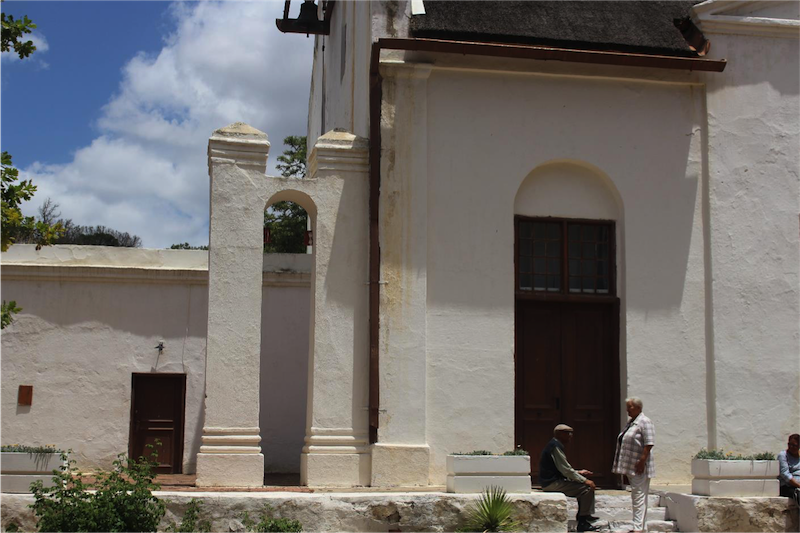




Think Equal, Build Smart, Innovate for Change
Cape Town Museum recently celebrated Women’s Month with a participatory exhibition under the theme, Think Equal, Build Smart, Innovate for Change. The event, which was held on on 1st August 2019, was organised in partnership with the Gender Equity Unit of the University of the Western Cape. Organisations such as Rape Crisis, Gender DynamiX, Sistaazhood, Speak Out and Women of Hope, as well as several individuals participated. Participants co-constructed the exhibition by adding the banners, posters and t-shirts of their organisation. They also had an opportunity to share details of the work that they were doing. The keynote speaker was Dr Mary Hames, Director of the Gender Equity Unit.
The International Women’s Day theme for 2019 focuses on social innovations that take into account the needs and experiences of women and girls. The scope of the challenge to innovate is broad – from access to education to changes to the workplace and the promotion of technology shaped by women – the challenge is to create a world that works for women as well as men.
The International Women’s Day theme for 2019 focuses on social innovations that take into account the needs and experiences of women and girls. The scope of the challenge to innovate is broad – from access to education to changes to the workplace and the promotion of technology shaped by women – the challenge is to create a world that works for women as well as men.

Cape Town Museum celebrates Africa Day and International Museum Day!
On 18 May 2019, the Cape Town Museum in partnership with Africa Unite, hosted an Inter High School Africa Day quiz. The event took place at the Cape Metro Council Chambers and six schools participated.
Heideveld High School emerged as the winners with Rosendaal High School from Delft second and Portlands High School from Mitchell’s Plain third. The other participating schools were Apex High School (Eerste River), Masibambane Secondary School (Kraaifontein) and Nelson Mandela High School (Nyanga). Below are some photos of the event.











What’s your Cape Town?
A museum that’s not a museum
The Department of Cultural Affairs and Sport, through its Museum service, has appointed Place Matters to conduct the research and conceptualization process for the Cape Town Museum. As part of this process, Place Matters will be conducting workshops and engagements with members of the public to get their input on what they think the Cape Town Museum should be.
The department aims to create a modern museum that may break away from the conventional look and feel of traditional museums. However, the museum should reflect what you consider to be “your Cape Town”. It has therefore has embarked on this process to get as much input as possible into the museum concept.
We’re planning a new museum to tell the story of Cape Town: Your Cape Town… and we need to hear from you.
What stories should the Cape Town Museum tell?
Where should it tell those stories?
How should it tell those stories?
Who should tell those stories?
Join us at a public workshop
We’ll be holding workshops across the city during May and June 2019 to get input from the public. Come tell us about the stories from your community that must be told.
Parow
When: Thursday, 16 May, 16:00-17:00
Where: Parow Public Library, Corner Mcintyre Street and 1st Avenue, ParowLanga
When: Saturday, 18 May, 10:30-11:30
Where: Guga S’thebe, Corner Washington and Church Streets, LangaGeorge
When: Tuesday, 21 May, 13:00 – 14:00
Where: George Museum, 9 Courtenay St, Bodorp, GeorgeCape Town City Centre
When: Thursday, 6 June, 18:00 – 19:00
Where: SA Sendinggestig Museum, 40 Long St, Cape Town City Centre, Cape TownLwandle
When: Friday, 7 June, 15:00-16:00
Where: Lwandle Migrant Labour Museum, Old Community Hall, Vulindlela Street, LwandleMamre
When: Saturday, 8 June, 11:30 – 12:30
Where: Mamre Moravian Mission Station, 57 Main Rd, Mamre
Confirm your attendance
To confirm your attendance email us at hello@whatsyourcapetown.co.za and tell us the session number you will be attending.
What does Cape Town mean to you?
Cape Town means many different things to many different people.
It’s been shaped by the many people who have lived here or visited here.
And they all have a different story of Cape Town.
If we had to ask you what Cape Town means to you, what would you say?
And what would your story of Cape Town tell?
Join the online conversation
If you can’t attend a workshop, you will also be able to comment online at www.whatsyourcapetown.co.za or on Twitter and Facebook. #MyCapeTown
This campaign is part of a project from the Western Cape Department of Cultural Affairs and Sport to find out what stories about Cape Town need to be told, and how.

Opening up dialogue on social inclusion
Last Friday, 27th July, the Cape Town Museum held the first of its public engagements on social inclusion with an event organised in conjunction with Activate! Change Drivers and Africa Unite. The event brought together organisations that work to promote human rights, change for public good and active, engaged citizens. The purpose of this engagement was to elicit their views on the vision of the new Cape Town Museum, which is to:
Provide a platform to address social, economic and environmental concerns.
Play an important role in building a culture of active citizenship, reflecting on collective identities, fostering respect for human rights and gender equality, and contributing to social inclusion and cohesion.
Part of the dialogue centred on how best to celebrate the diverse histories, cultures, languages and identities of those in the Western Cape, and how the museums might work with communities to record and share these. Central to the discussions were the following questions:
What does social inclusion mean to you and how is it applied in your own space/organisation?
Do you think the Cape Town is working in an inclusive and interconnected?
What inclusive and interconnected opportunities and potential do you see through the Cape Town Museum?
The event stimulated worthwhile debate from a number of different stakeholders. Click below to see some pictures and a video of participants in action.
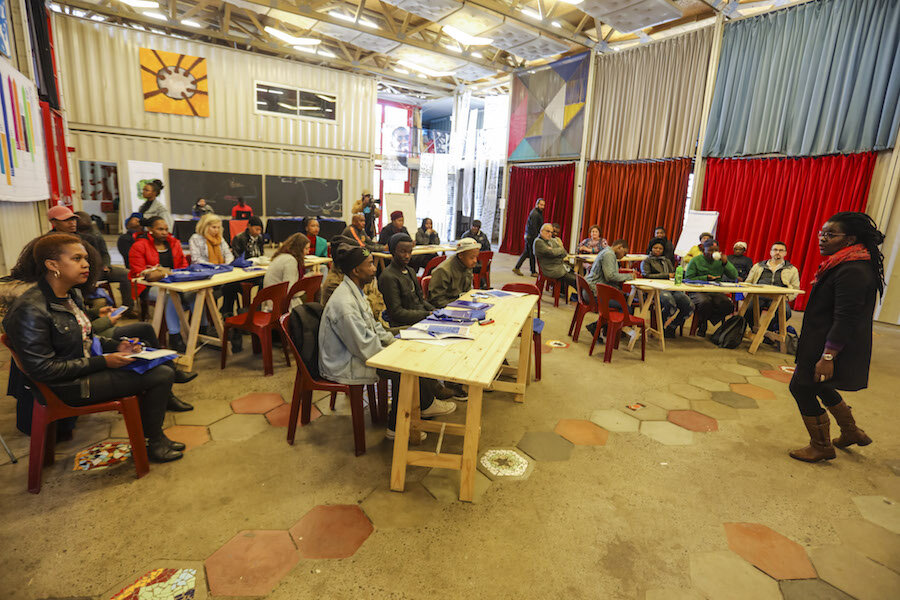
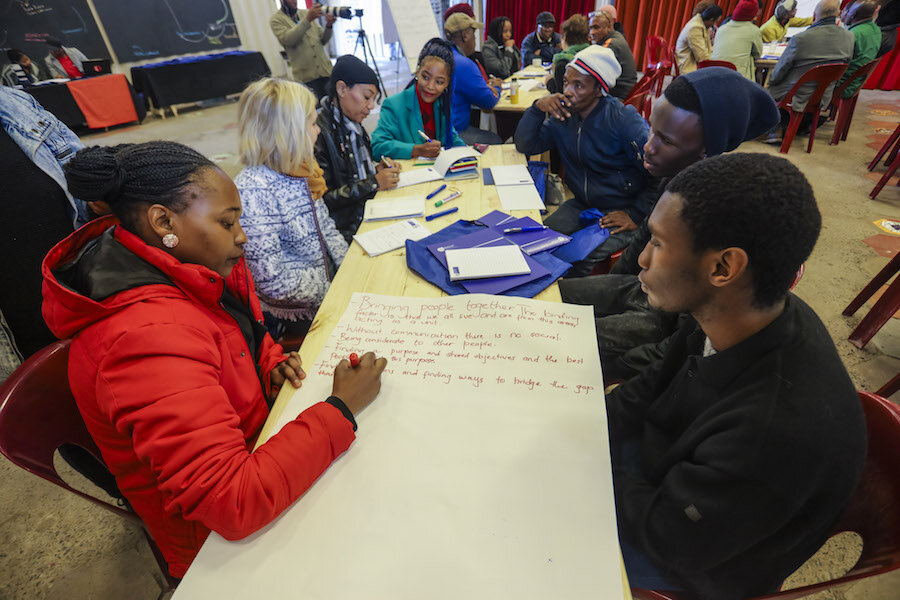
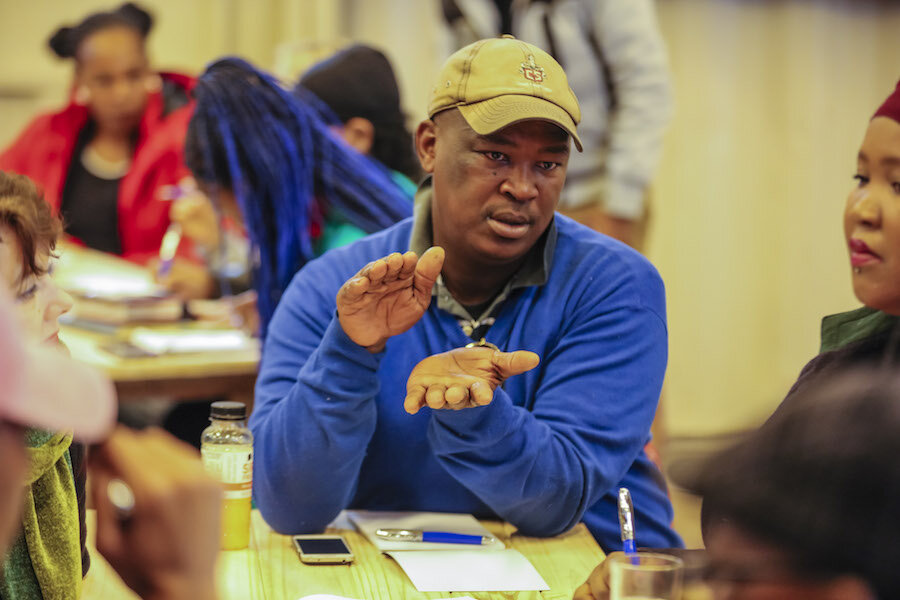


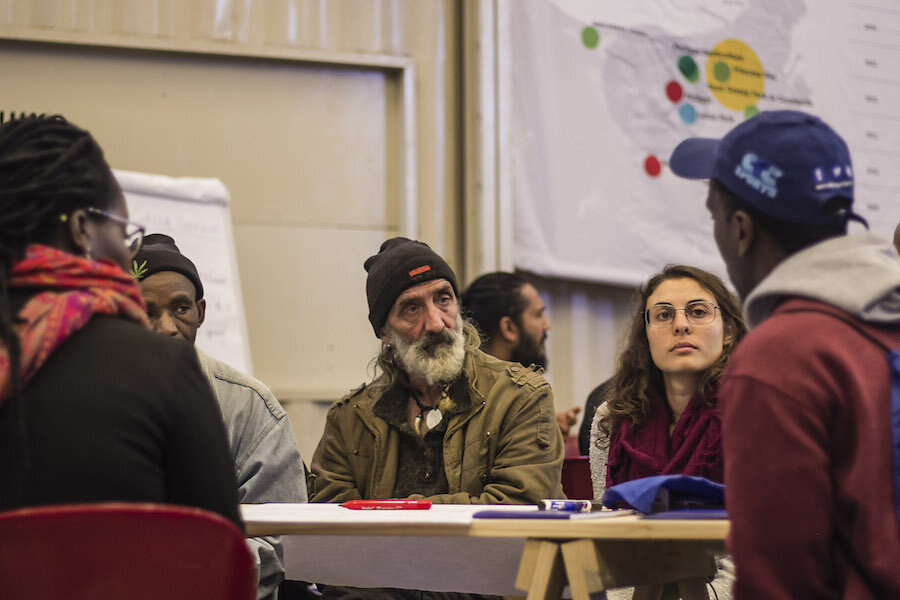
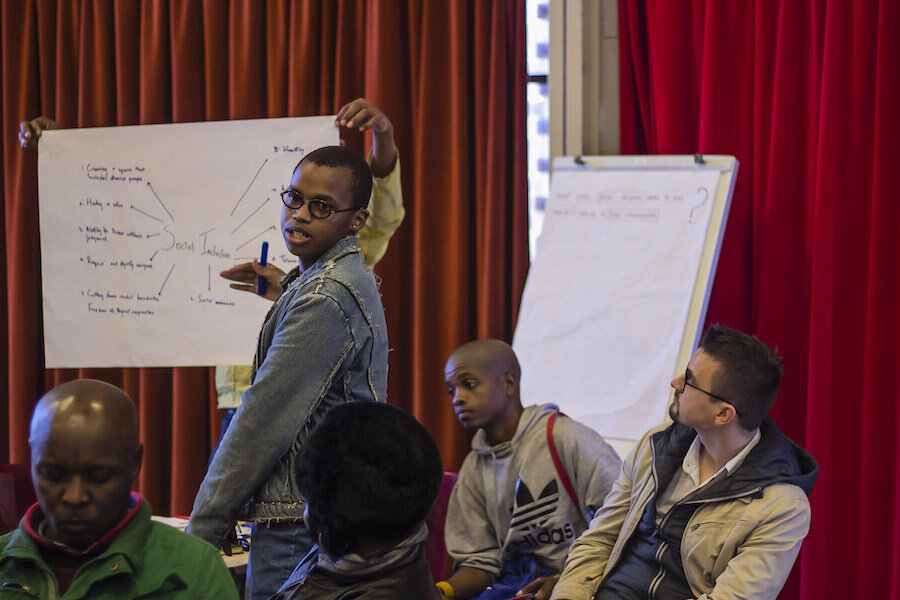


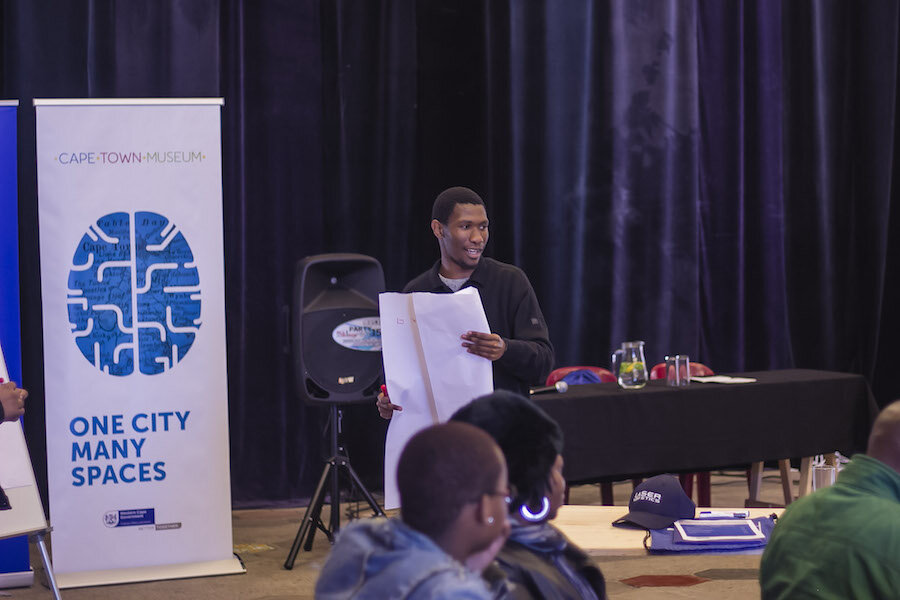
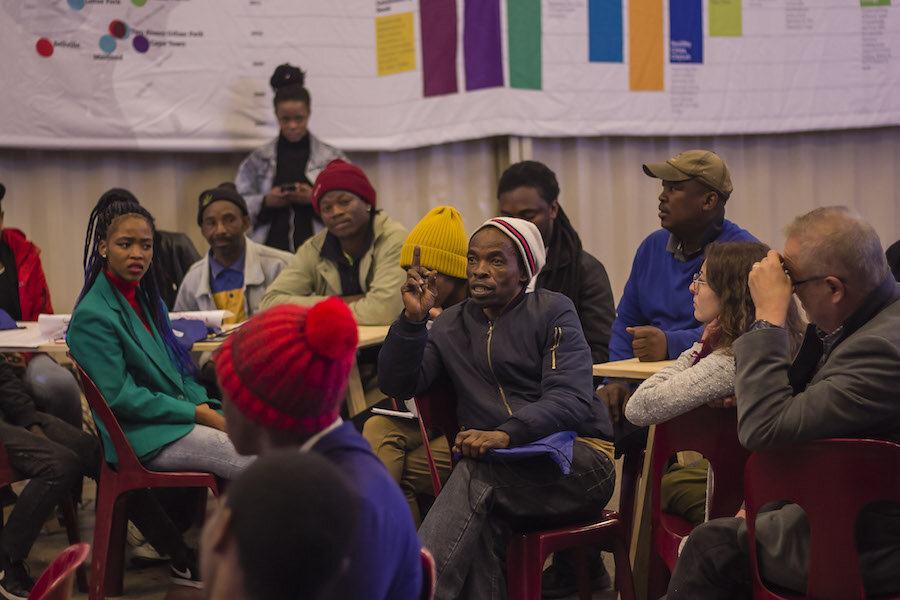
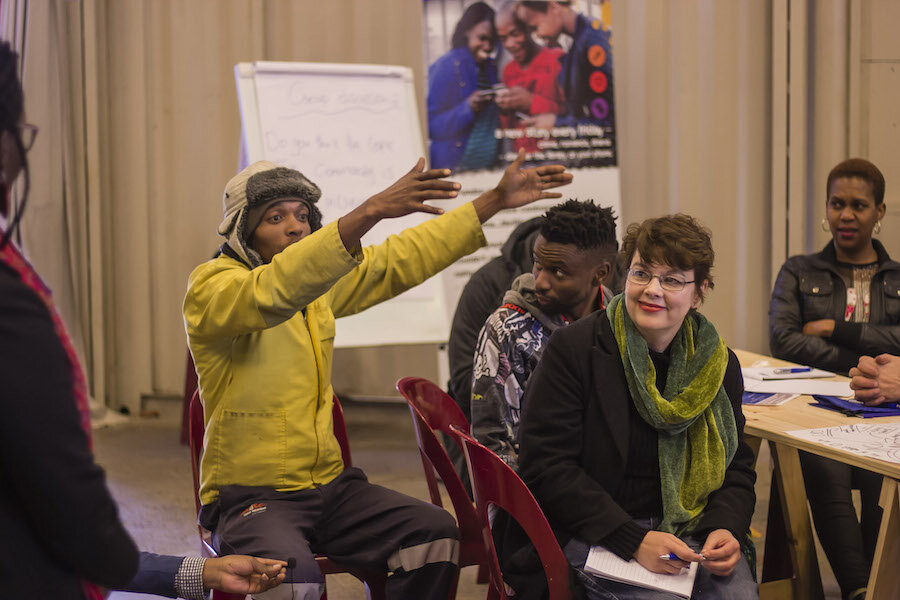
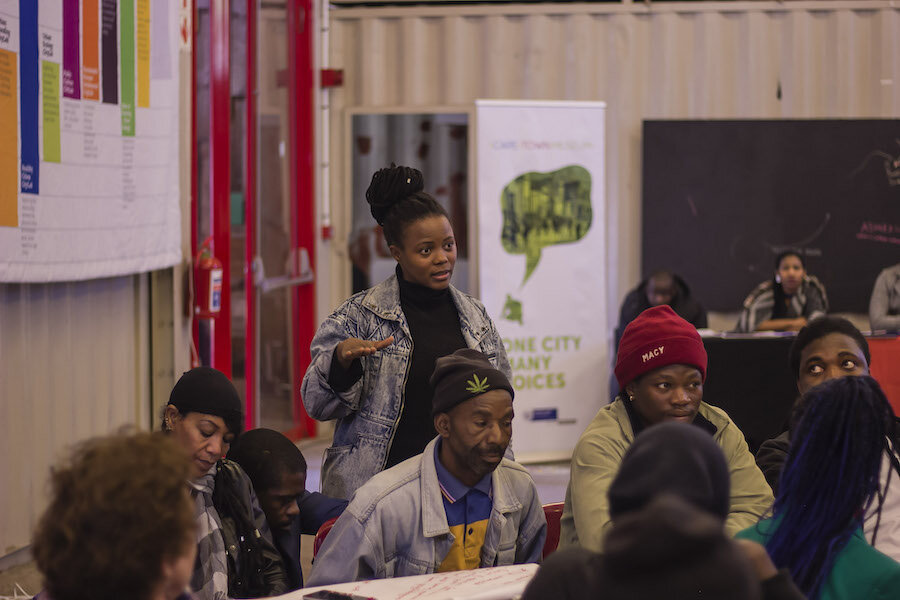



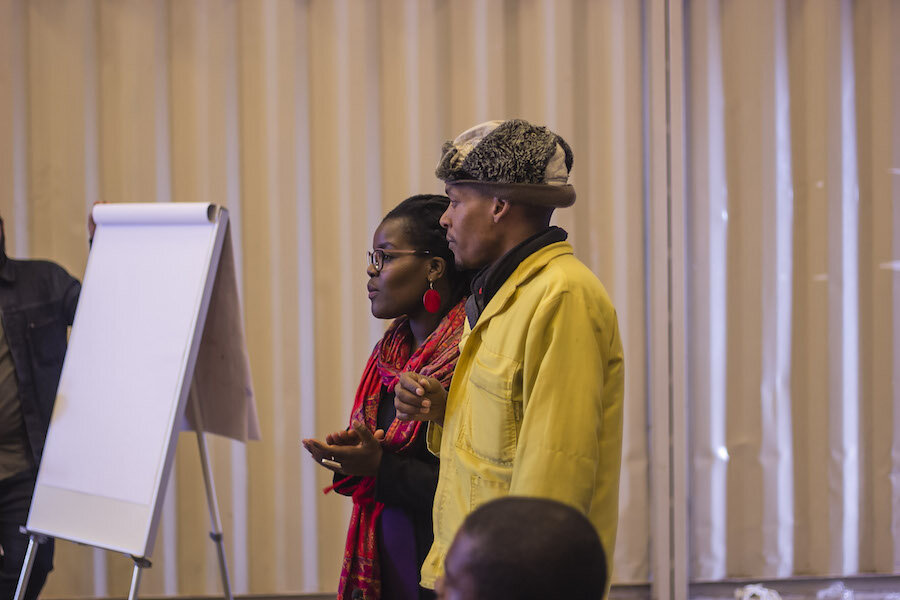
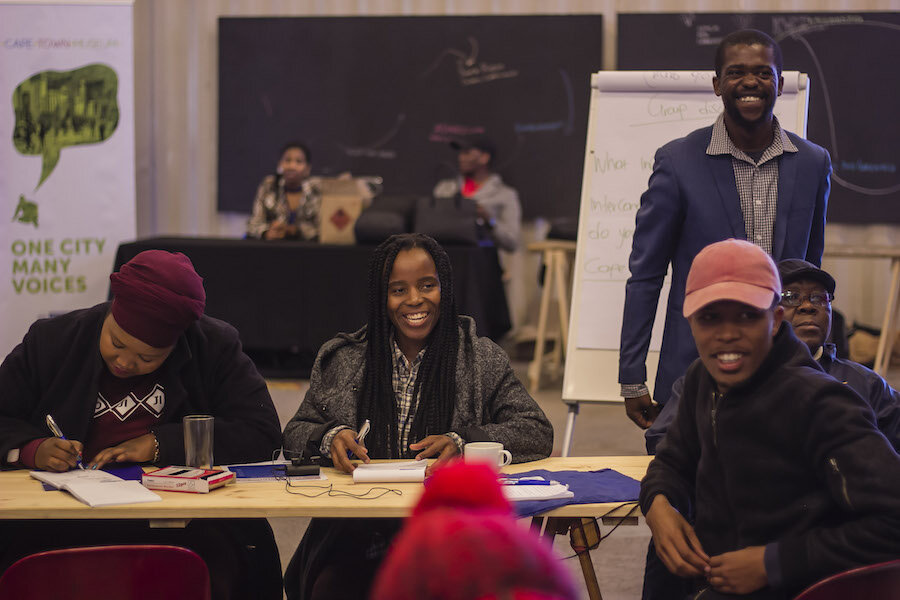

Dialogues on Women and Gender at the Cape Town Museum
As part of its Women’s Month activities, the Cape Town Museum took the first steps towards establishing a Women and Gender Programme. This took the form of a brainstorming workshop, held at the Museum Services’ Office in Ruyterwacht on 31 May 2018, that was attended by museum staff and other interested stakeholders. See photos of the event below.
By establishing the Cape Town Museum as a space that fosters respect for human rights and gender equality, the objectives of the Women and Gender Programme are to create a:
Museum platform that focuses on women’s experiences;
Museum platform that deals with gender identity and gender expression;
Network of partnerships throughout the City.
We are looking forward to more dialogues on women and gender hosted by the Cape Town Museum. Please contact us at capetownmuseum@westerncape.gov.za if you would like to join the conversation.
